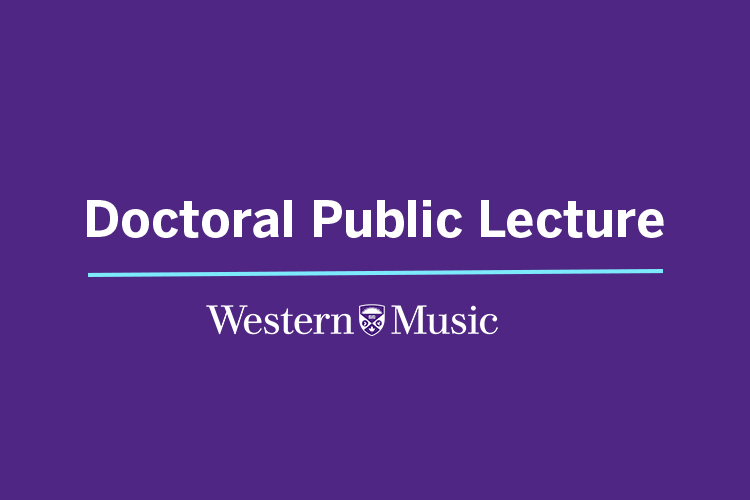Search Website
QUICK LINKS:

Doctoral Public Lecture | Gustavo Jimenez Pereira
Student Name: Gustavo Jimenez Pereira
Program: Music – Music Education
Thesis Title: Music teachers' perceptions on policy enactment: Moving away from normativeness by investigating successful cases of harp classes in North American public school-based programs
Abstract:
This study examines how music teachers navigate and enact change within their classrooms, focusing on their perspectives regarding challenges, strategies, and the contextual conditions that enabled them to deviate from normative practices. While the research investigates specific examples of harp programs in public schools, these serve as powerful illustrations of broader issues faced by music educators seeking to implement non-traditional programs, informing discussions on music education reform beyond large ensemble traditions. By recognizing the individuality of music teachers’ contributions in the educational space, drawing on Biesta’s (2013) ontological distinction between “learning from” and “being taught by”, this study further acknowledges the role of the teacher in the teaching-learning process. Guided by a theoretical framework integrating Life Course Perspective (Elder, 1974, 1998; Elder, Johnson & Crosnoe, 2003) and policy enactment theory (Ball, Maguire & Braun, 2012), this study employs a narrative inquiry methodology (Clandinin & Connelly, 2000) to investigate the biographical and professional trajectories of four harp teachers in North American public schools. Narrative thematic analysis, coupled with a cross-case approach, highlights points of convergence across participants and illuminates the complex interplay between individual agency and institutional constraints. The study explores how teachers negotiate policy pressures related to accountability, budgeting, scheduling, and limited preparation from teacher training institutions, situated within a broader neoliberal logic of standardization that constrains professional agency. Findings indicate that teachers exercise deliberate and strategic thinking, using their agency to increase program visibility, secure alternative funding, and build coalitions with educational stakeholders. Such strategies enable them to advocate effectively for their programs, navigate institutional barriers, and sustain non-traditional music education offerings. By examining these extreme yet informative cases, this research contributes to understanding how teachers can enact meaningful educational change, offers insights for music educators seeking to implement programs outside conventional ensemble frameworks, and highlights the need for university-level institutions and professional development opportunities to address the specific challenges faced by educators in nontraditional settings, requiring a policy-entrepreneurial mindset (Mintrom & Norman, 2009).
Please contact Audrey Yardley-Jones, Graduate Program Assistant, Don Wright Faculty of Music, for further information: ayardley@uwo.ca